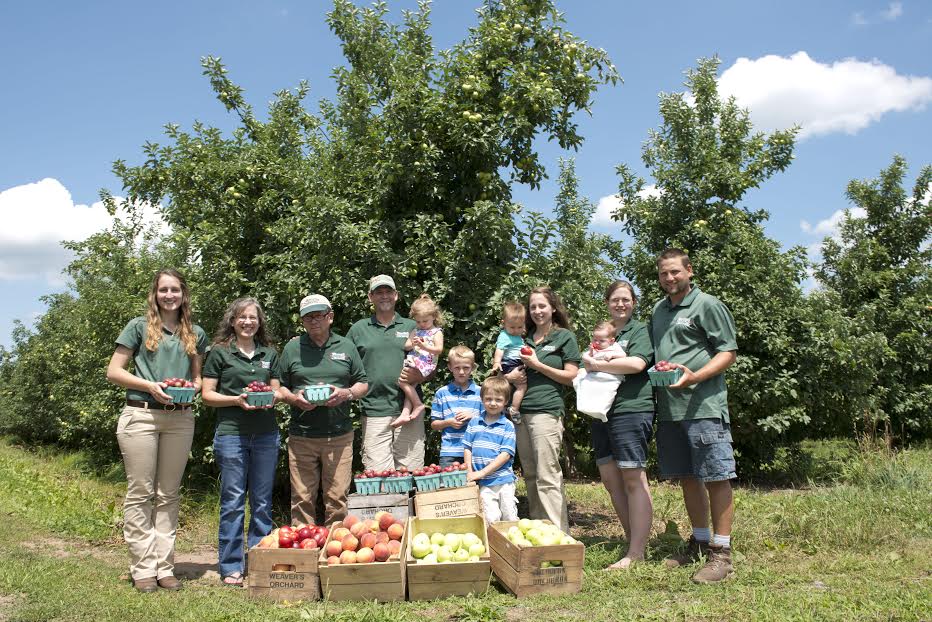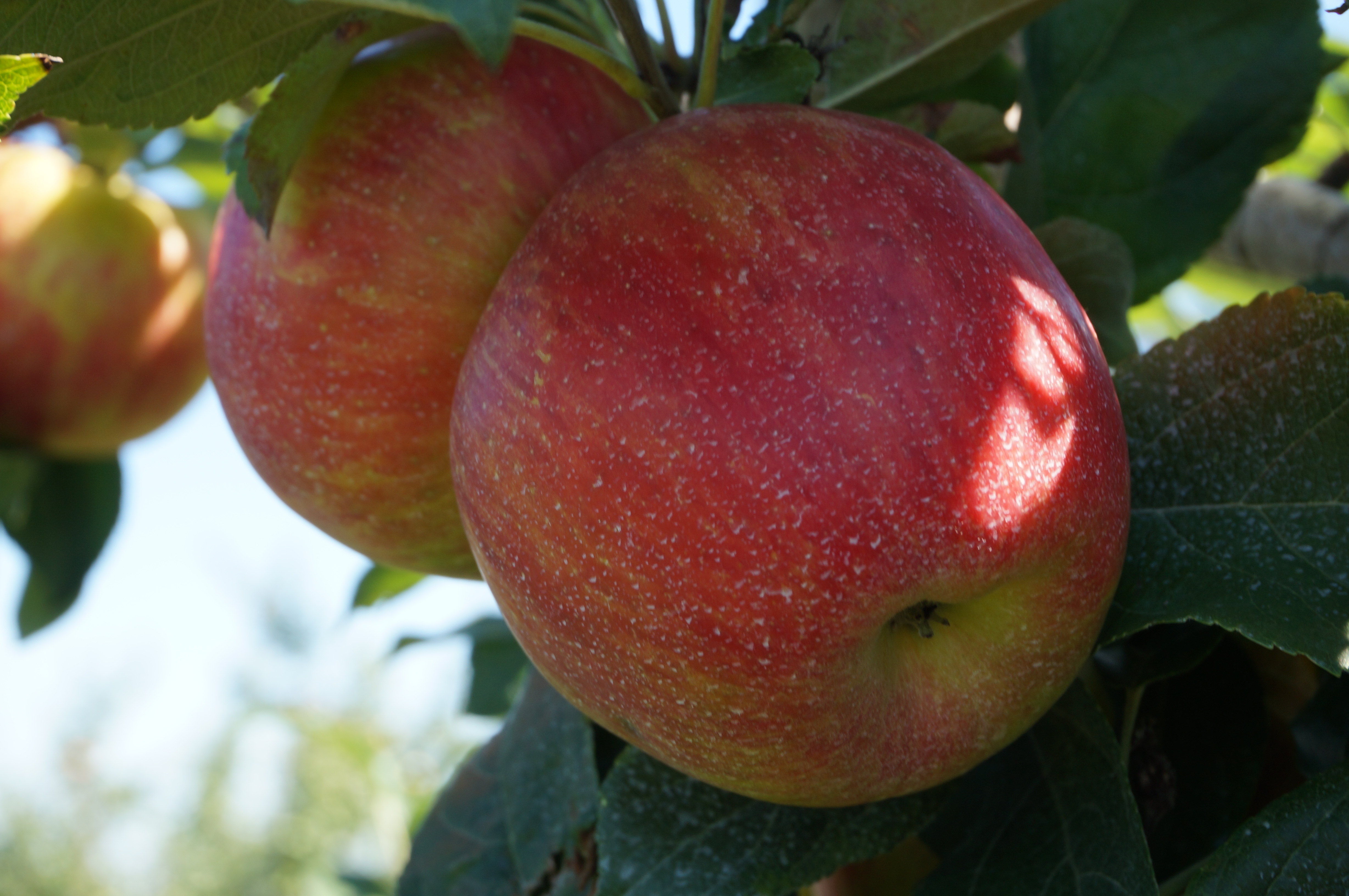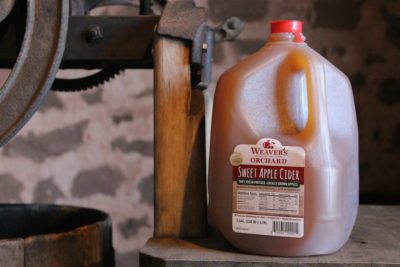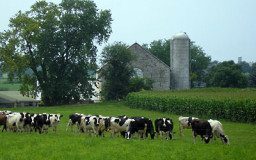The air is cooler and September has arrived, which can only mean one thing: The apple press is hard at work at Weaver’s Orchard, a four-generation farm located in Berks County, PA. Their preservative-free apple cider is pressed from September through May, and is famous throughout the region for its fresh-off-the-tree taste.

GROWING PRACTICES AT WEAVER’S ORCHARD
Weaver’s practices Integrated Pest Management (IPM) methods, which means that they limit the use of pesticides in the growing process. An important piece of IPM is the careful tracking and monitoring of pests. Ed Weaver, president of Weaver’s Orchard Inc., explains, “We set traps throughout the orchard. This lets us monitor and keep records on type of pest, quantity, and time of arrival. If we need to spray, these records allow us to be much more focused in terms of time, place, and type of spray. It is okay if the traps contain a few harmful bugs. Our goal is to control the population level, and we don’t have to eradicate pests entirely in order to produce good fruit. We take action once the population of any given pest rises to a scientifically set number.”
One way that Weaver’s controls the population of pests is by using pheromones to disrupt mating. These pheromones are used to specifically target one kind of pest without affecting beneficial insects. For example, they can make an entire area smell like the Coddling Moth females; the males are then unable to find the females and do not mate, which prevents the reproduction of a future generation. Using this method, the farmers can reduce populations of Coddling Moth, whose larvae are the main kinds of worms found in apples and pears.

SUSTAINABILITY
Weaver’s takes special care to rotate crops and to plant cover crops. They apply much of their fertilizer through drip irrigation to avoid run off. When appropriate, organic pest control methods such as Surround (a clay compound to deter Pear Psylla pests in pears) may be used. Finally, they employ the use of high tunnels (unheated greenhouses used to grow fruits and vegetables) which are considered a sustainable practice because they reduce disease.
THE CIDER

At Weaver’s, the cider is made from a blend of up to ten varieties of apples to give it its award-winning taste. (Just ask the judges at the Mid-Atlantic Apple Cider Contest!) The types of apples used changes throughout the season, utilizing the freshest apples available. For example, in September it is often Honeycrisp, Gala, Macintosh, Golden Delicious, Smokehouse, and Jonathan. Later in the season they may add Jonagold, Crispin, Fuji, Winesap, Cameo, Granny Smith, and Pink Lady. This careful blending results in a perfect sweet-tart balance in the finished product.
To make the cider, the apples are picked straight from the tree, washed, brushed, and pressed. Rather than using heat pasteurization, which affects the flavor of the cider, Weaver’s uses ultraviolet light to rid the cider of any potential bacteria while maintaining its fresh-picked flavor.
We are proud to support this local, family-owned orchard.









